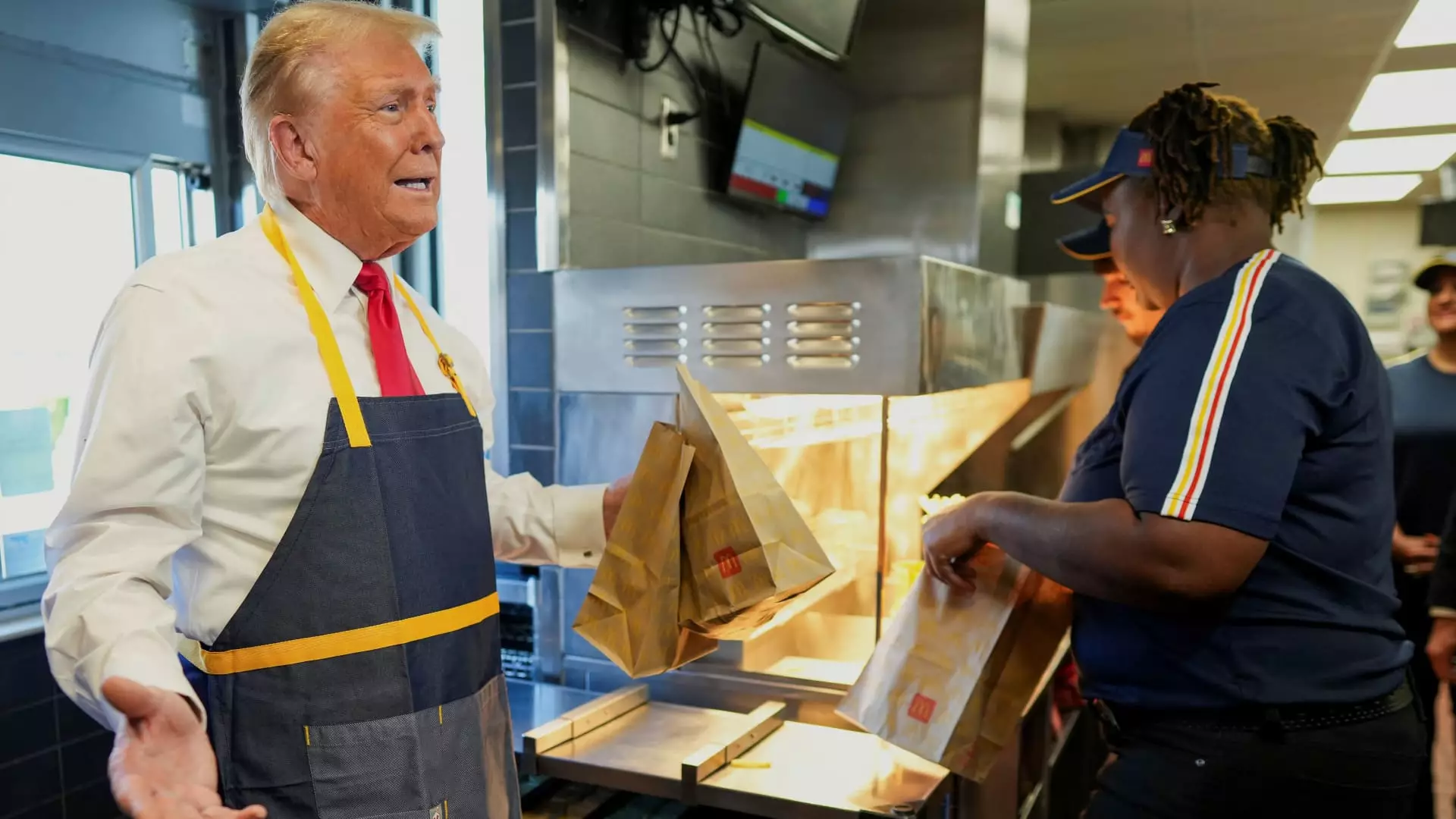In an era where fast food isn’t just a source of nourishment but an emblem of cultural significance, companies like McDonald’s find themselves navigating treacherous waters. Recently, former President Donald Trump made headlines when he visited a McDonald’s in Feasterville, Pennsylvania. However, this visit comes as McDonald’s strives to maintain a neutral position amidst a highly charged political atmosphere. The company’s internal communications reveal a clear intention not to endorse any political candidates, crucial in an election cycle characterized by divisive rhetoric.
McDonald’s management has articulated their commitment to remaining apolitical, emphasizing the brand’s broad appeal across a diverse American populace. Their statement, as reported by sources like CNBC, highlights the paradox of their situation: while the brand unexpectedly finds itself at the center of political discourse, it does not wish to take sides. This delicate balance is increasingly difficult for corporations as they face growing pressure to align with social movements and political issues.
The company recognized that even though Trump, during his visit, used the franchise to launch criticisms at his political opponent, Vice President Kamala Harris, McDonald’s will not be swayed by the political fray. The claims made by Trump regarding Harris’s past employment at McDonald’s, while unverified, contribute to the ongoing narrative that fast food establishments are now intertwined with political strategy. By distancing itself from such controversies, McDonald’s is reinforcing its image as accessible to everyone—a vital tenet in its operating philosophy.
Fast food possesses aspects of Americana that transcend mere sustenance; it reflects socio-economic dynamics and cultural sentiment. With over 38% of Americans feeling that businesses should refrain from public political statements, McDonald’s aims to cater to this growing sentiment. Its strategy appears to align with similar corporate shifts where brands like Ford and Harley-Davidson have also pulled back from overt political endorsements and ideologically divisive actions.
By highlighting its inclusivity, as voiced by franchisee Derek Giacomantonio, McDonald’s attempts to reassert its founding principles. Serving food to all members of the community is a long-standing value, and attempts by figures like Trump to politicize that experience may be met with resistance from both the public and corporate identity.
Controversies are not new to McDonald’s, and managing public perception in turbulent political times is crucial. The recent backlash regarding inflated menu prices—a narrative tied to broader economic policies—exemplifies this challenge. After data leaked showing soaring prices, attributed by political opponents to the Biden administration’s economic policies, McDonald’s acted swiftly. U.S. President Joe Erlinger put out clarifications and fact sheets aimed at dispelling misinformation and reaffirming the company’s pricing practices.
Navigating this scrutiny demands agility and communication transparency, especially when social media can amplify critiques overnight. The brand’s engagement with the public reflects a necessity for accountability, showcasing that McDonald’s is more than just a purveyor of fries and burgers—it is a significant player in the socio-political landscape of America.
As McDonald’s endeavors to maintain its neutral stance in a fractious political environment, it also faces the challenge of staying relevant while respecting the diverse perspectives of its customer base. The ever-changing expectations of consumers necessitate a delicate balance: sustaining brand integrity without compromising the core values that have endeared it to millions.
In the coming months, it will be intriguing to see how McDonald’s navigates the intersection of food, culture, and politics. The outcomes of such maneuvers will not only influence the brand’s perception but will also speak to the broader conversation about corporate responsibility and customer engagement in an increasingly polarized society. The future will likely see brands like McDonald’s reassess their roles—not just as food providers but as influential entities in a landscape fraught with complexity.


Leave a Reply